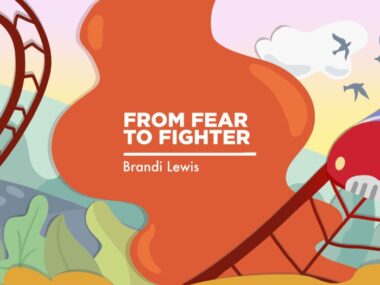Struggling with shame and the urge to compare yourself with others
How I managed feelings of fear, frustration, and embarrassment
Written by |

Battling my rare blood disorders, aplastic anemia and paroxysmal nocturnal hemoglobinuria, initially brought a sense of shame to my life. I was ashamed to be the sick girl who was living at home with her parents and dependent on them for daily needs.
As Brené Brown wrote in an article titled “Shame vs. Guilt,” “I define shame as the intensely painful feeling or experience of believing that we are flawed and therefore unworthy of love and belonging — something we’ve experienced, done, or failed to do makes us unworthy of connection.”
Even though my diagnoses weren’t my fault, shame made me feel unworthy of life. This feeling soon gave way to anger and led me to compare myself with others.
Navigating the comparison trap
I remember a pronounced instance of comparison from early in my journey. I was on medical leave from the University of North Alabama and didn’t know how to fill my time. My days now consisted of doctor appointments, taking medication on a strict schedule, and discussing my symptoms. In between those events, I’d pick up my phone and scroll through social media.
My Facebook feed was filled with photos of friends and sorority sisters enjoying a night out or creating memories at the latest college event. Seeing their happiness made me sad to have missed out. In those moments, comparison grew thick. I found myself battling shame and frustration because my life looked different from what I’d expected.
The OxJournal defines this experience as social comparison:
“Social comparison is a theory proposed by psychologist Leon Festinger in 1954 that states that individuals determine their self-worth by comparing themselves to others. It is the tendency to use other people as sources of information to determine how we are doing relative to others (ability comparison) or how we should behave, think, and feel (opinion comparison). These comparisons can be anything and everything in a person’s life, such as lifestyle choices, looks and charisma, academic achievements, wealth, and more.”
As I compared my life with the lives of my college friends, I always asked the same question: “Why?” I didn’t understand how I’d gone from waking up in a dorm room every morning to waking up in my childhood room.
I tell this story because I believe almost everyone battling a chronic illness has reached a similar point on their journey. Everyone’s story is different, but the feelings of shame are the same.
I remember this time in my health journey because it was a turning point for me. I was filled with fear, frustration, and embarrassment, and knew I couldn’t stay in this state forever. I had to learn how to manage my mental and emotional health.
Sometimes ignorance is bliss, so staying offline was the best choice for me. But avoiding social media is easier said than done; it takes practice.
I also began to journal about my feelings and where I was at in life. I didn’t always write in complete sentences; sometimes I just listed out my emotions or jotted down phrases like “I hate where I’m at.” Being real on paper was therapeutic and gave me relief.
Lastly, I gave myself time to feel all my feelings, good and bad. No matter how hard I tried to suppress them, my emotions always rose to the surface. I allowed myself to feel all the sadness, fear, and frustration by crying, eating ice cream while watching a good show (dramatic, much?), or just sitting with my feelings.
Importantly, I gave myself a deadline. It can be easy to remain in a state of sadness, but it’s not always healthy. So I gave myself permission to be human and feel all my feelings for two days, and then I had to move forward. Sometimes all we need are a few hours or days to just unapologetically be.
If you’re in a shame spiral or a comparison coil, you’re not alone — I’ve been there, too. Recognize what you’re feeling and try to focus on yourself and your health. You deserve it!
Note: PNH News is strictly a news and information website about the disease. It does not provide medical advice, diagnosis, or treatment. This content is not intended to be a substitute for professional medical advice, diagnosis, or treatment. Always seek the advice of your physician or other qualified health provider with any questions you may have regarding a medical condition. Never disregard professional medical advice or delay in seeking it because of something you have read on this website. The opinions expressed in this column are not those of PNH News or its parent company, Bionews, and are intended to spark discussion about issues pertaining to paroxysmal nocturnal hemoglobinuria.






Leave a comment
Fill in the required fields to post. Your email address will not be published.